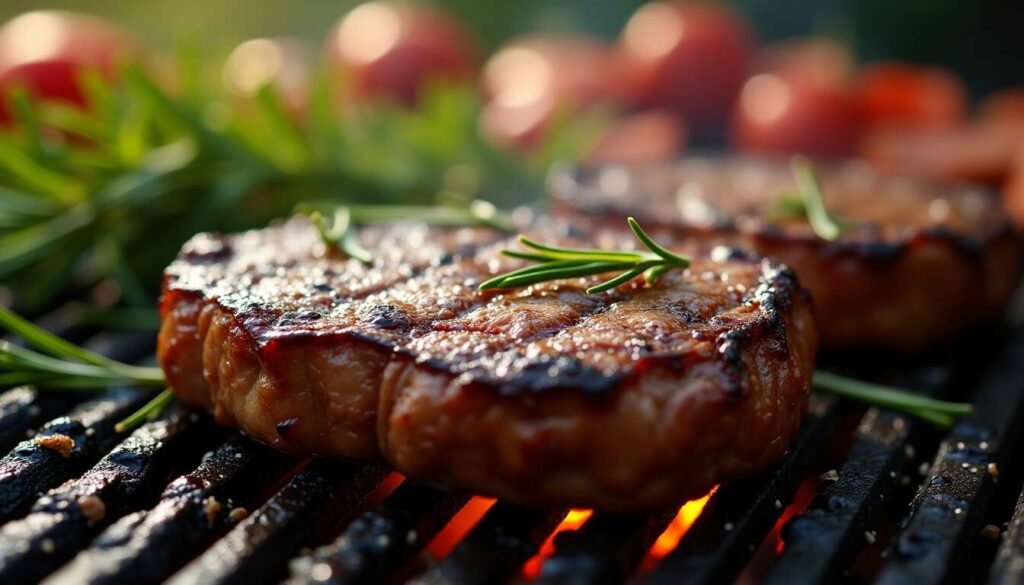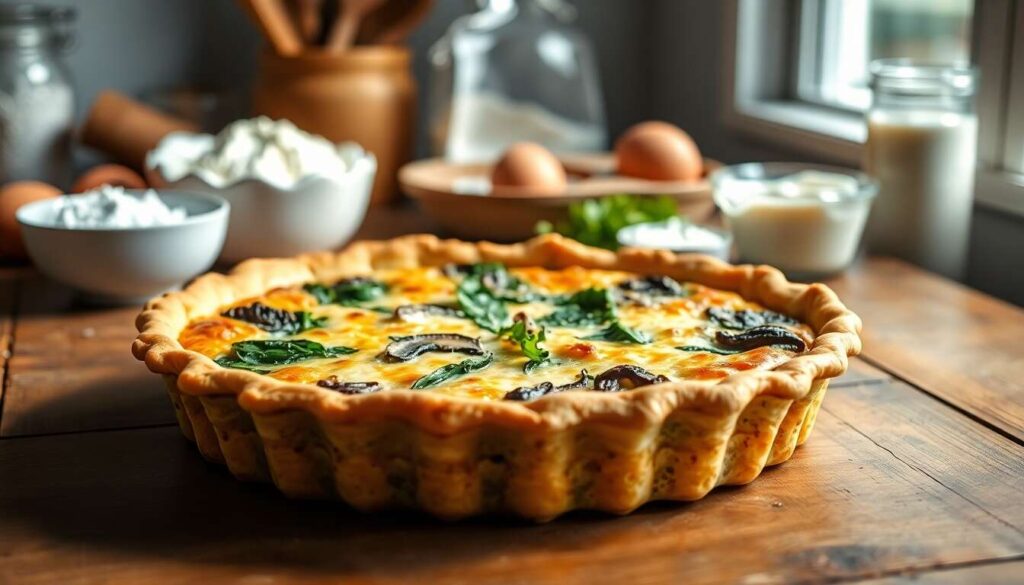Grilling meat is a delicate art that requires knowledge and practice to master. One of the biggest disappointments is serving guests overcooked, dry meat. Fortunately, with a few simple tips, you can elevate your barbecue experience and delight your guests with juicy and flavorful cuts of meat every time you fire up the grill.
Understanding the Importance of Meat Preparation
Choosing the Right Cut
Before you even think about lighting the grill, selecting the right meat is paramount. Cuts with some marbling retain moisture better and offer a succulent flavor. For instance:
- Ribeye steak
- Lamb
- Pork belly
These cuts, with their natural fat, help to preserve the necessary tenderness for successful cooking.
Appropriate Slicing
The thickness of your meat is also critical. A steak that is too thin cooks quickly, increasing the risk of dryness. Choose cuts that are at least 2 to 3 centimeters thick for even cooking.
The importance of preparation continues with the choice of the right type of grill to achieve optimal results.
Choosing the Right Type of Grill for Cooking
Charcoal vs. Gas: An Inescapable Decision
The type of grill you use can significantly impact the tenderness of your meat. Charcoal grills impart a distinct smoky flavor, while gas grills offer more precise temperature control. Here’s a quick comparison:
| Type of Grill | Advantages | Disadvantages |
|---|---|---|
| Charcoal | Smoky flavor, intense heat | Longer preparation time, less control over temperature |
| Gas | Easy temperature control, quick setup | Less smoky flavor |
Electric Grill: An Alternative
Electric grills are perfect for those living in apartments. Although they don’t provide the same charcoal flavor, they are convenient for quick and even cooking.
Once you have chosen the type of grill, mastering the fire is essential for successful cooking.
Mastering the Fire for Perfect Cooking
Regulating Heat
Having total control over the cooking temperature is vital to avoid drying out the meat. By opening or closing the vents of the grill, you can effectively manage the heat. If you’re using a gas grill, simply adjust the burners.
Creating Indirect and Direct Cooking Zones
Setting up both direct and indirect cooking zones on your grill allows you to vary your cooking techniques. Direct cooking is perfect for searing meat, while indirect cooking is ideal for slow roasting without drying it out.
The Secrets of Marinades to Tenderize Meat
The Key Ingredients for a Marinade
Marinades play a crucial role in tenderizing and adding intense flavor to the meat. Here are some essential components:
- Acids: Lemon juice, vinegar
- Oils: Olive oil, sesame oil
- Spices: Garlic, pepper, herbs
Marinating Duration
Allowing the meat to marinate for at least 30 minutes before cooking enhances tenderness and flavor. For optimal results, let it marinate overnight in the refrigerator.
With every step of preparation being vital, precise internal temperature control is the key to success.
Controlling Internal Temperature with Precision
Using a Meat Thermometer
To avoid any unpleasant surprises, a meat thermometer is an indispensable tool. It allows you to cook the meat to the precise temperature, ensuring perfect juiciness. The ideal temperatures are:
- Rare: 50-55°C
- Medium: 60-65°C
- Well done: 70-75°C
By monitoring these temperatures, you can ensure perfect cooking every time.
Optimizing Meat Resting After Cooking
The Benefits of Resting
Letting the meat rest after cooking is a crucial yet often overlooked step. This resting period allows the juices to redistribute, ensuring a juicier and more flavorful bite.
How Long Should You Let It Rest?
As a general rule, let the meat rest for about 5 to 10 minutes under a sheet of aluminum foil. This simple gesture significantly enhances the tasting experience.
It’s time to add a final touch to your meat with a smoky hint and a subtle seasoning.
Add a Smoky Touch and Final Seasoning
Playing with Wood Chips
For those looking to enhance the smoky flavor, using wood chips such as hickory or applewood can be beneficial. These chips, placed directly on the coals, infuse the meat with delicate aromas.
Seasonings
After resting, lightly sprinkle your meat with sea salt and a touch of freshly ground pepper. This final seasoning enhances the meat’s flavor while highlighting the tastes of the marinades and smoking used previously. For your next barbecue purchases and accessories, consider exploring our selection in partnership here: [affi=id]
With these techniques and tips, every barbecue can be a guaranteed success. The combination of meticulous preparation, fire control, and thoughtful seasoning creates the ideal recipe for perfect grilling. Implementing these recommendations ensures that every meal becomes a memorable culinary experience.







